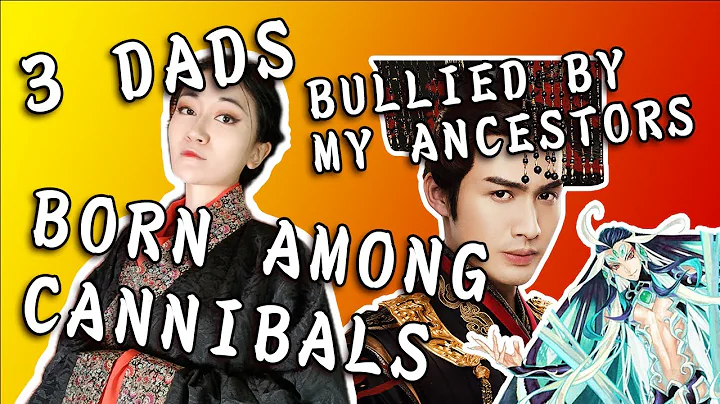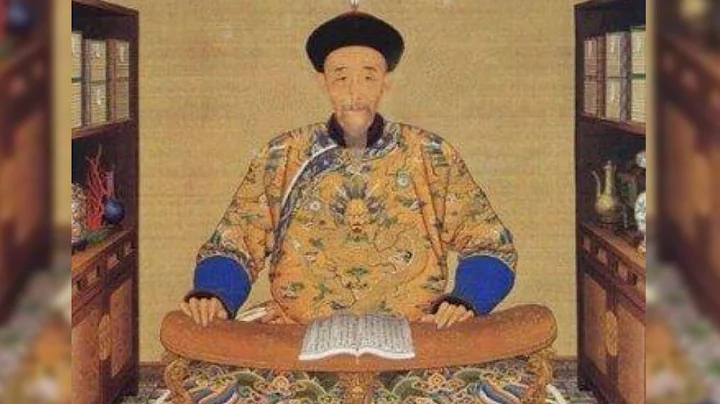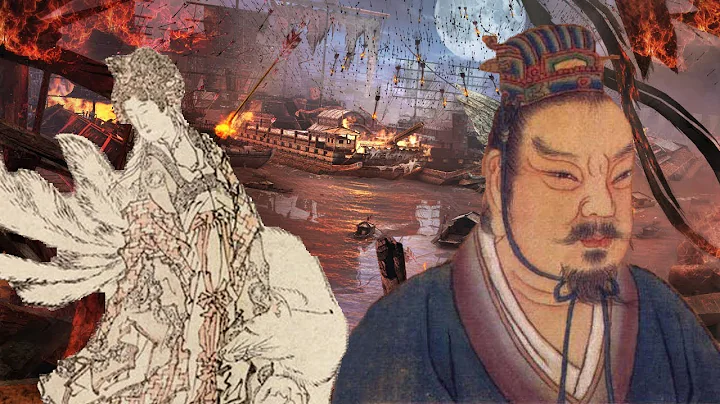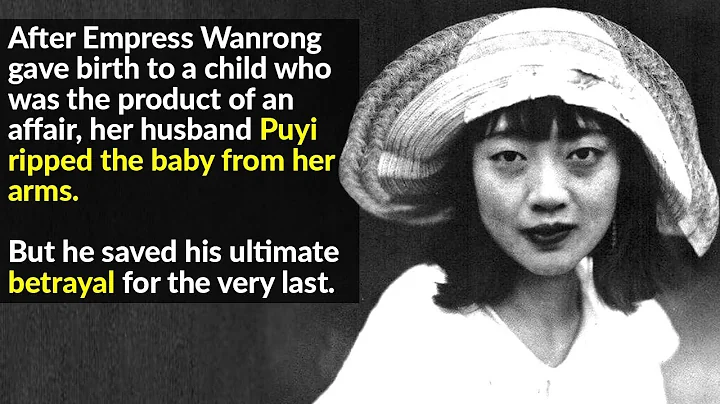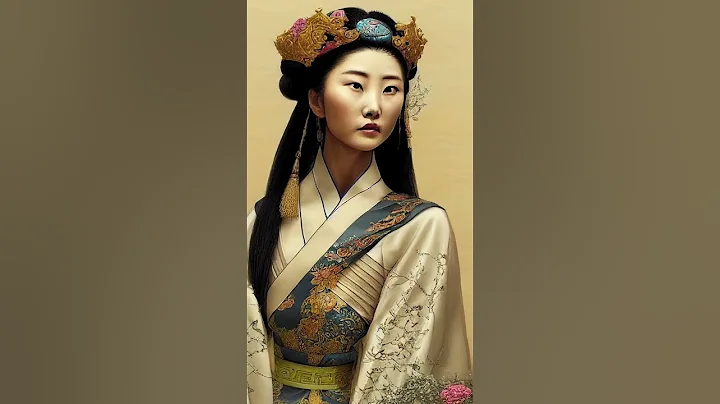There is a type of people in Chinese history who never became emperors during their lifetime, but after their death they became emperors. They were either born in poverty and humbleness, and their descendants became emperors and were posthumously named; or they held power during their lifetimes, but just to leave a son Those who had a better foundation were posthumously crowned; or those who worked hard and made great achievements were posthumously crowned by their sons. Today we will take a look at the emperors who have never been emperors but were posthumously crowned. Today we will only talk about the famous ones.
1. King Zhuang Xiang of Qin Ying Zi Chu - the first posthumous emperor

During the Warring States Period , the king of Qin was forced to go to Zhao as a hostage because he was not favored by Prince An Guojun. Later, Lu Buwei bribed Mrs. Huayang, the favorite concubine of King An Guo, through his connections, and gradually gained attention. After King An Guo succeeded to the throne, he was called King Xiaowen of Qin , and Zi Chu was established as the prince. King Xiaowen died only three days after taking the throne, and Zi Chu succeeded him as King Zhuangxiang of Qin. During his reign, he conquered the Eastern Zhou Dynasty. After his son Ying Zheng succeeded to the throne, he unified China and became the emperor. He was Qin Shihuang , and he pursued Ying Chu as the Supreme Emperor.
2, Han Dynasty Liu Shu (Emperor Xiaoyuan), Liu Chang (Emperor Xiaoren) - they were granted the title at once

Emperor Ling of the Han Dynasty posthumously conferred the title of emperor on his grandfather and father
Emperor Xiao Wang Liu of Hejian at the time of Emperor Ling of the Han Dynasty Kai's descendant, Han Emperor Huan died without leaving any heirs. Liu Hong, the grandson of Liu Shu, the Marquis of Jiedu Ting, and Liu Chang, the thirteen-year-old son, was unexpectedly favored by the Dou family of the central government and welcomed to the capital Luoyang. General Dou Wu supported Liu Hong to succeed the throne as Emperor Ling of the Han Dynasty. But this is because Liu Shu and Liu Chang have passed away long ago and cannot enjoy the great glory brought to him by their descendants. Therefore, Emperor Ling of the Han Dynasty made both of them emperors.
3, Cao Wei Cao Cao ( Emperor Wu of Wei ) - the most famous

general - Prime Minister - Duke of Wei - King of Wei - Emperor Wu of Wei, Cao Cao's promotion path
Cao Cao was actually a powerful official in the late Eastern Han Dynasty. He held the Emperor Xian of the Han Dynasty in his hands and cultivated his own power. From the time he welcomed Emperor Xian of the Han Dynasty to Xuchang in 196 to his death in 220, it took him 24 years to control the entire The central power of the Eastern Han Dynasty was replaced by his direct descendants. After Cao Cao's death in March 220, his son Cao Pi forced Han Xian Emperor Liu Xiechan to be in his position in October of that year. The Eastern Han Dynasty was destroyed and Cao Wei was established. Chasing Cao Cao as Emperor Taizu Wu.
4, Sun Wu Sun Jian (Emperor Wu Lie) - Give birth to a son like Sun Zhongmou

Sun Jian in the Romance of the Three Kingdoms
The founder of the Sun Wu regime in the Three Kingdoms, he was named Wucheng by the court because of his meritorious service in conquering the rebels in the south of the Yangtze River. Hou. Dong Zhuo brutally brutalized the Han Dynasty, and Sun Jian and other warlords formed a group of princes to fight against the rebellion. During the crusade against Dong Zhuo, he obtained the legendary Imperial Jade Seal from Luoyang (according to legend). Later, he had no choice but to submit to Yuan Shu. Yuan Shu ordered him to crusade against Liu Biao, and Liu Biao sent Huang Zu to fire poisonous arrows from the bamboo forest. , Sun Jian was shot and killed by an arrow. Sun QuanAfter the establishment of the Wu Kingdom, Sun Jian was posthumously named Emperor Wulie, the ancestor of the temple name, and was buried in Gaoling.
5, Xiao Tong (Emperor Zhaoming ) of the Southern Dynasties - the most talented posthumous emperor

He was the favorite son of Emperor Wu of Liang and the eldest son. In 502, when Liang Chao was established, he was appointed as the prince. He behaved generously and was famous for his benevolence in the East Palace. He was loved by the government and the people. Xiao Tong died of illness in 531, and Emperor Wu of Liang was devastated. He presided over the compilation of "Selected Works" (historically known as "Selected Works of Zhaoming"), which contains more than 700 poems and poems from the pre-Qin to Liang Dynasties. It is the earliest existing large-scale collection of poems and prose in China. Later generations formed a group specializing in the study of "Selected Works". "Choose a study." His grandson Xiao Dong succeeded to the throne and posthumously named him Emperor Zhaoming.
6, Sui Dynasty Yang Zhong (Emperor Wuyuan) - Minister of the Zhuguo State, his descendants were named generals from the Northern Wei Dynasty to the Northern Zhou Dynasty. Later, he escorted Emperor Xiaowu and Yuanxiu to move the capital to Chang'an, and was reused by Prime Minister Yuwentai.After the establishment of the Northern Zhou Dynasty, he successively worshiped Da Sikong (Yu Shi Dafu), was granted the title of Shangzhu Kingdom, and was granted the title of Duke (the origin of the country title in the Sui Dynasty). Unwilling to rely on Yu Wenhu , he was demoted and died of illness in 568. He was given the title of Taibao and the governor of Tongzhou, and his posthumous name was Huan. After his son Yang Jian came to the throne, he was posthumously named Emperor Wuyuan.
7, Tang Dynasty Li Xian (Let the Emperor) - High integrity or prudent self-protection?

Li Xian in the film and television drama
In fact, according to normal logic, Tang XuanzongLi Longji has no chance to take the throne, because the prince of his fatherTang RuizongLi Dan is not Li Longji, but the eldest son Li Xian. When Tang Ruizong succeeded to the throne for the first time in 684, Li Xian was established as the crown prince. Emperor Zhongzong of the Tang Dynasty passed away in 710, and Li Longji united with Princess Taiping to kill the Webster Group and stabilize the political situation. Ruizhong was restored, and he took the initiative to give up the position of crown prince to his younger brother Li Longji. He had a good relationship with his third brother Li Longji. He did not engage in political affairs and did not make friends with courtiers. After his death, he was posthumously named Emperor Rang by Xuanzong .
8, Yuan Bo'er Jijin - Tuo Lei (Yuan Ruizong) - the one who is more famous than his strength.

83 Tuo Lei in the Condor Heroes
Everyone knows Tuo Lei, most of them because of "The Legend of the Condor Heroes". He was the fourth son of Genghis Khan. After Genghis Khan's death, he served as the "supervisor of the country" in accordance with the Mongolian tradition of "the youngest son guarding the stove" and supported the throne of Wokuotai. His military ability is the strongest among Genghis Khan's sons, his political ability is mediocre, but his sons are all better. The eldest son Mengge and the fourth son Kublai Khan successively served as the Great Khan of Mongolia, and Kublai Khan established the Yuan Dynasty. Toolei's branch was the founder of the Yuan Empire. The first thing Kublai Khan did after establishing the Yuan Dynasty was to posthumously grant a title to his father.
9, Ming Zhu Biao (Emperor Xiaokang) - Taizu's favorite, died young

He Shengming's version of Zhu Biao
This is not too much introduction. Recently, these things about Ming Taizu have been poorly played in TV dramas. It can be said that if Zhu Biao was here, Zhu Di's status in Chinese history would be like that of King Qin Zhu Feng. In 1392, after Zhu Biao, who had been the prince for 25 years, returned from an inspection, he died of a cold and was given the posthumous title of "Yi Wen". After his son Zhu Yunwen succeeded to the throne, he was posthumously named Emperor Xiaokang. After Zhu Di ascended the throne, he was given the posthumous title of "Prince Yiwen". The Hongguang regime of the Southern Ming Dynasty was also posthumously named Emperor Xiaokang.
10, Ming Zhu Youqi ( Ming Ruizong , also known as Emperor Xingxian) - the emperor posthumously named after the controversy over the Dali Conference
He is not famous in history, but he has a son who can commit suicide, that is Jiajing Emperor Zhu Houcong . This guy has been rebellious since before he took the throne. He refused to adopt Xiaozong, and then, despite the objections of the officials, he honored his mother as Empress Cixiaoxian, and posthumously honored Zhu Youqi as emperor, and the mausoleum was called Xianling. Zhu Youqian loved poetry and calligraphy, but did not like to indulge in pleasure. He was keen on art and literature, and his representative work is "Enji Poetry".
11, Qing Aixinjueluo-Dorgon (Qing Chengzong) - repeatedly and finally won the title

Dorgon and Shunzhi
Dorgon is the fourteenth son of Nurhaci and the younger brother of Huang Taiji, Huang Taiji When he proclaimed himself emperor, many kings were granted the title, and Dorgon was awarded the title of Prince rui. He was one of the twelve iron-hatted kings in the Qing Dynasty. When Huang Taiji died in 1636, Shunzhi succeeded to the throne, and Dorgon was named the regent. Later, he was also called "the regent of the emperor's uncle" and "the regent of the emperor's father". It was Dorgon who led the army when the Qing Dynasty entered the Pass, and Dorgon also played an important role in unifying the country. However, his domineering attitude also dissatisfied Emperor Shunzhi. When Dorgon died of illness in 1650, Emperor Shunzhi posthumously named him the "Chengzong of the Qing Dynasty". Just two months later, the title was deprived and his clan status was deposed. During the Qianlong period, his princely title and clan status were restored.
What else do you want to know about and can be discussed together.
